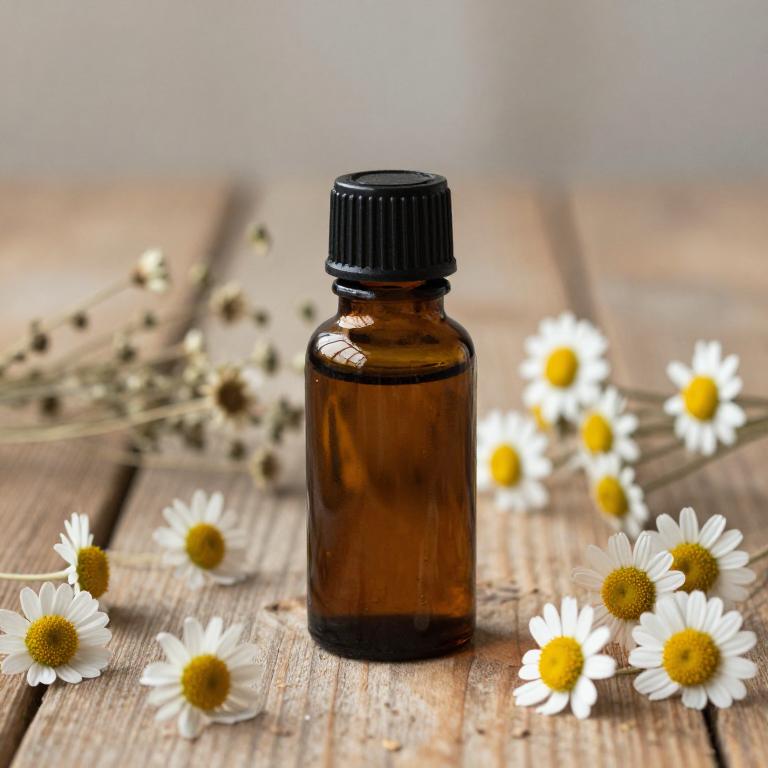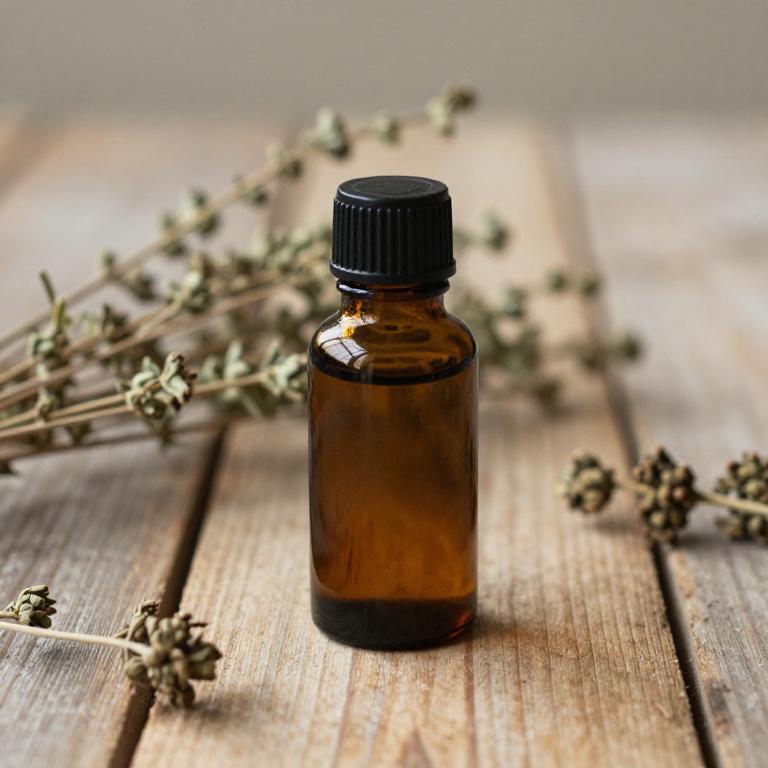10 Best Herbal Essential Oils For Earache

Herbal essential oils, such as eucalyptus, peppermint, and lavender, have been traditionally used to alleviate earache due to their anti-inflammatory and analgesic properties.
These oils can be diluted with a carrier oil and applied topically around the ear or used in a warm compress to help reduce pain and swelling. Some studies suggest that certain essential oils may help reduce congestion and inflammation in the Eustachian tube, which can contribute to ear discomfort. However, it is important to avoid direct application of undiluted essential oils in or near the ear canal to prevent irritation.
Always consult with a healthcare professional before using essential oils for earache, especially if there is an underlying infection or injury.
Table of Contents
- 1. Eucalyptus (Eucalyptus globulus)
- 2. Melaleuca (Melaleuca alternifolia)
- 3. English lavender (Lavandula angustifolia)
- 4. Ginger (Zingiber officinale)
- 5. Rosemary (Rosmarinus officinalis)
- 6. Ceylon cinnamon (Cinnamomum zeylanicum)
- 7. Black pepper (Piper nigrum)
- 8. German chamomile (Chamomilla recutita)
- 9. Thyme (Thymus vulgaris)
- 10. Oregano (Origanum vulgare)
1. Eucalyptus (Eucalyptus globulus)

Eucalyptus globulus, commonly known as Australian eucalyptus, is a popular source of essential oils used for its various therapeutic properties, including its potential to alleviate earache.
The essential oil is derived from the leaves of the eucalyptus tree through steam distillation, resulting in a clear, fragrant oil rich in compounds like cineole and limonene. When used appropriately, eucalyptus globulus oil can help reduce inflammation and relieve pain associated with ear infections or irritations due to its antiseptic and analgesic properties. However, it is important to dilute the oil with a carrier oil before applying it to the skin or using it in a diffuser to avoid skin irritation.
While some studies suggest its effectiveness, it is advisable to consult a healthcare professional before using it for earache, especially in children or individuals with sensitive skin.
2. Melaleuca (Melaleuca alternifolia)

Melaleuca alternifolia, commonly known as tea tree oil, is a potent essential oil derived from the leaves of the Melaleuca alternifolia plant, native to Australia.
While it is well-known for its antimicrobial properties, it is not typically recommended for direct use on the ears due to its strong potency and potential to irritate sensitive tissues. However, some alternative remedies suggest diluting tea tree oil with a carrier oil and applying it externally around the ear to help alleviate symptoms of mild earaches caused by bacterial or fungal infections. It is important to consult a healthcare professional before using tea tree oil for ear-related issues, as improper application can lead to adverse effects.
Always ensure the oil is properly diluted and used with caution to avoid skin irritation or damage.
3. English lavender (Lavandula angustifolia)

Lavandula angustifolia, commonly known as English lavender, is widely recognized for its calming and therapeutic properties, including its potential benefits for earache.
The essential oil derived from this plant contains compounds such as linalool and lavandulol, which possess anti-inflammatory and analgesic effects that may help alleviate pain and reduce inflammation in the ear. When used in a diluted form, lavender essential oil can be applied topically around the ear area to provide localized relief, though it should never be applied directly into the ear canal. Some studies suggest that its antimicrobial properties may also help prevent infections that can contribute to ear pain.
However, it is important to consult a healthcare professional before using lavender essential oil for earache, especially in children or individuals with sensitive skin.
4. Ginger (Zingiber officinale)

Zingiber officinale, commonly known as ginger, contains essential oils that have been traditionally used for their anti-inflammatory and analgesic properties.
These essential oils, derived from the root of the plant, may help reduce pain and inflammation associated with earaches by targeting the underlying causes of discomfort. While there is limited scientific research specifically on using ginger essential oils for earache, anecdotal evidence suggests that its warming and soothing effects may provide relief. When applying ginger essential oils, it is important to dilute them properly with a carrier oil to avoid skin irritation.
As with any herbal remedy, it is advisable to consult a healthcare professional before using ginger essential oils for earache, especially if the condition persists or is accompanied by other symptoms.
5. Rosemary (Rosmarinus officinalis)

Rosmarinus officinalis, commonly known as rosemary, is a herb widely used in aromatherapy for its essential oils, which are believed to offer various health benefits.
The essential oil of rosemary contains compounds such as camphor, cineole, and borneol, which are thought to have anti-inflammatory and analgesic properties. When used for earache, rosemary essential oil may help reduce inflammation and alleviate pain by promoting blood circulation in the ear area. However, it is important to dilute the oil properly with a carrier oil before applying it to the skin to avoid irritation.
While some people find relief from rosemary oil for earache, it is advisable to consult a healthcare professional before using it for medical conditions.
6. Ceylon cinnamon (Cinnamomum zeylanicum)

Cinnamomum zeylanicum, commonly known as cinnamon, produces a warm and spicy essential oil that has been traditionally used for its therapeutic properties.
This essential oil is often utilized in aromatherapy and natural remedies to alleviate symptoms of earache due to its anti-inflammatory and antimicrobial properties. When applied topically, diluted cinnamon oil can help reduce pain and swelling in the ear area, making it a popular choice for natural ear care. However, it is important to use it with caution, as undiluted cinnamon oil can cause skin irritation or allergic reactions.
Overall, cinnamon essential oil offers a natural alternative for managing earache, though it should be used under proper guidance for safety and effectiveness.
7. Black pepper (Piper nigrum)

Piper nigrum, commonly known as black pepper, contains essential oils that have been traditionally used for their analgesic and anti-inflammatory properties.
These essential oils, extracted through steam distillation, contain compounds like piperine, which may help reduce pain and inflammation associated with earaches. While there is limited scientific research specifically on its use for earache, some alternative medicine practitioners suggest applying diluted black pepper essential oil to the outer ear as a topical remedy. It is important to note that direct application of undiluted essential oils can cause skin irritation, so proper dilution with a carrier oil is recommended.
As with any natural remedy, it is advisable to consult a healthcare professional before using piper nigrum essential oils for earache, especially if symptoms persist or worsen.
8. German chamomile (Chamomilla recutita)

Chamomilla recutita, commonly known as German chamomile, is a popular herbal source of essential oil often used for its calming and anti-inflammatory properties.
The essential oil extracted from its flowers contains compounds like bisabolol and chamazulene, which are known for their analgesic and antiseptic effects. When applied topically, chamomile essential oil may help reduce inflammation and soothe the pain associated with earaches. However, it is important to dilute the oil properly with a carrier oil to avoid skin irritation.
While some people use it as a natural remedy for earaches, it is advisable to consult a healthcare professional before using it, especially for children or individuals with sensitive ears.
9. Thyme (Thymus vulgaris)

Thymus vulgaris, commonly known as thyme, is a herb widely used in aromatherapy and traditional medicine for its potent essential oils.
The essential oil of thyme contains compounds like thymol and carvacrol, which have strong antimicrobial and anti-inflammatory properties. These properties make thyme essential oil a potential natural remedy for earache, as it can help reduce infection and inflammation in the ear canal. When used in a diffuser or applied topically with a carrier oil, thyme essential oil may provide relief from discomfort associated with ear infections.
However, it is important to consult a healthcare professional before using essential oils for earache, especially if the condition is severe or persistent.
10. Oregano (Origanum vulgare)

Origanum vulgare, commonly known as oregano, is a herb widely used in aromatherapy for its potent essential oils, which are believed to offer relief for earache due to their antimicrobial and anti-inflammatory properties.
The essential oil of oregano contains high concentrations of carvacrol and thymol, both of which have been studied for their ability to combat bacterial infections, including those that may contribute to ear infections. When used in a diffuser or applied topically with a carrier oil, oregano essential oil may help reduce inflammation and soothe pain associated with earaches. However, it is important to consult a healthcare professional before using essential oils, especially for children or individuals with sensitive skin.
While oregano essential oil may provide some symptomatic relief, it should not replace medical treatment for persistent or severe ear pain.